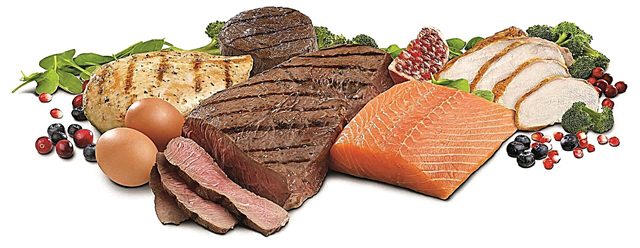April 2 is celebrated around the world as Autism Awareness Day. According to the UN, about 70 million people in the world suffer from autism spectrum disorders (a complex of developmental disorders of the brain).
I know very little about this, honestly, but I have come across opinions in several books on the treatment of this neurological disorder in children with high-fat and low-carbohydrate diets, as well as with probiotics. Having shared this information, I want to make my humble contribution on this day today. If among your friends there are parents who have encountered this problem, then share / like / repost, you know.
So, Dr. David Perlmutter on autism:
- In the United States, 85-92% of children with autism also have gastrointestinal disorders (diarrhea and constipation). This led scientists to the idea of a connection between the diet of children and delays in speech development.
- Disorders in bowel function affect disturbances in the functioning of the brain. Children with autism have been found to have high levels of clostridia (very dangerous bacteria) in their intestines and low levels of beneficial bifidobacteria.
- The first important study on the role of gut abnormalities in the manifestation of autism symptoms was conducted in 2000 by Richard Sandler. He discovered that children with autism have unhealthy gut flora.
- Further research confirmed the link, and 8 out of 10 children with autism showed significant improvements after treatment of the intestinal microflora.
- For example, in Cambodia, where children have a very diverse microflora in the intestines and a very low level of hygiene, autism is almost never found, and in a sterile Western society it thrives.
- In 2012, Stanford University School of Medicine published the results of a study of NAC (acetylcysteine) supplementation in children with autism. The results were positive and in the following years, studies were carried out by other organizations. Dr. Perlmutter recommends that you discuss with your doctor the possibility of taking oral NAC, L-carnitine and Omega-3 in children with autism symptoms.
- Autism is also a mitochondrial disorder. Remember the conversation about MMT (mitochondrial metabolic therapy) in Dr. Mercola's book? If you (God forbid!) Or someone close to you have encountered autism, then it makes sense to turn to MMT specialists too. It seems to me that there are already a couple of these in Russia).
- Autism is often mistaken for symptoms of a child's nutritional deficiency. So, before you put up with such a diagnosis, double-check it many times.
- And gluten is also under suspicion. In the UK in 1999, there was a study that showed a significant improvement in the condition of children with autism after 5 months of a gluten-free diet and a sharp deterioration when returning to a normal diet.
In general, the causes of autism in children are still unknown to science and they can be different for each child, but with regard to therapy and achieving sustainable regression, scientists are working in such main areas now: treatment of intestinal microbiota in different ways, gluten-free diet, mitochondrial function treatment. There is no magic instant cure for autism yet.
Please remember one more important fact: there is no connection between vaccinations and autism. Just stop even thinking about it, there is no such connection and there was not. This myth was born of stupidity and coincidence and has long been debunked.
Autism treatment, what to read about it
This post is based on the materials of two books "Food and the Brain" and "Intestine and Brain" (there is a whole section on "Autism and the Gut") by the American neurologist Dr. David Perlmutter.
If you need to learn more about mitochondrial therapy, read "A Cell on a Diet" by Joseph Mercola and you can safely ask me in the Direct, which of the domestic doctors I saw MMT in practice.
If you need more information on gluten and its dangers - Wheat Kilograms by William Davis, the entire book is about it.
Symptoms that should alert you
All children and adults with or without autism are very different, but a number of signs should not be overlooked. So, see a neurologist if your children under the age of three:
• do not point to objects for expressing their own interest (for example, an airplane flying overhead);
• do not look at an object when someone else is pointing at it;
• are not interested in other people and have difficulty building relationships;
• avoid eye contact and prefer to be alone;
• have trouble understanding other people's feelings or expressing their own feelings;
• avoid body contact and hugs or allow themselves to be hugged only when they feel like it;
• do not respond when asked by other people, but respond to other sounds;
• may be very interested in other people, but do not know how to communicate with them, play, build relationships;
• repeat the words or phrases they have spoken, or repeat words or phrases instead of the normal use of the language;
• have difficulty expressing their own needs through words or gestures;
• do not play traditional “role-playing” games (for example, do not pretend to be feeding a doll);
• repeat the same actions over and over;
• have difficulty adapting when changing their daily routine;
• exhibit unusual reactions to smell, taste, visual representation, touch, or sound;
• lose acquired skills (for example, they may stop speaking words that were used in speech earlier).
These symptoms are quoted from the book "Intestine and Brain" by David Perlmutter (Publishing House "Eksmo", Moscow, 2017)











